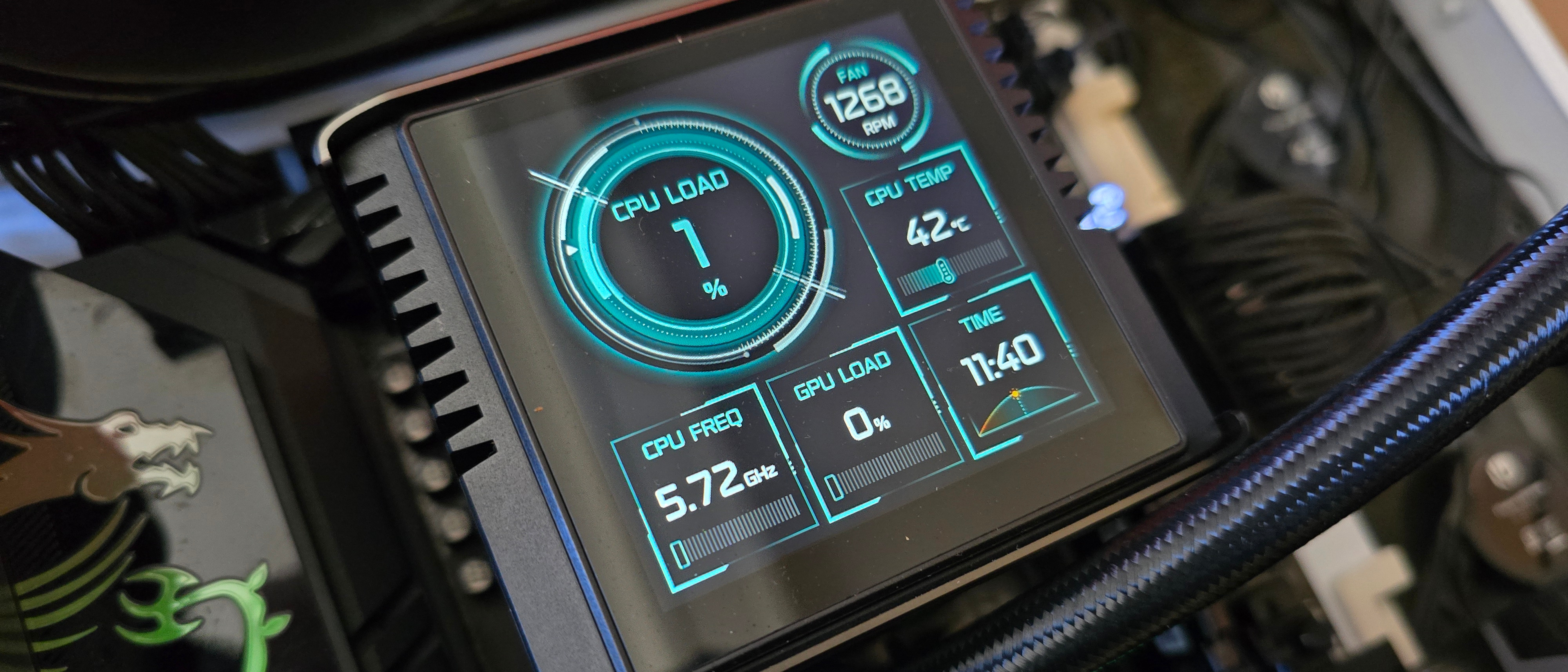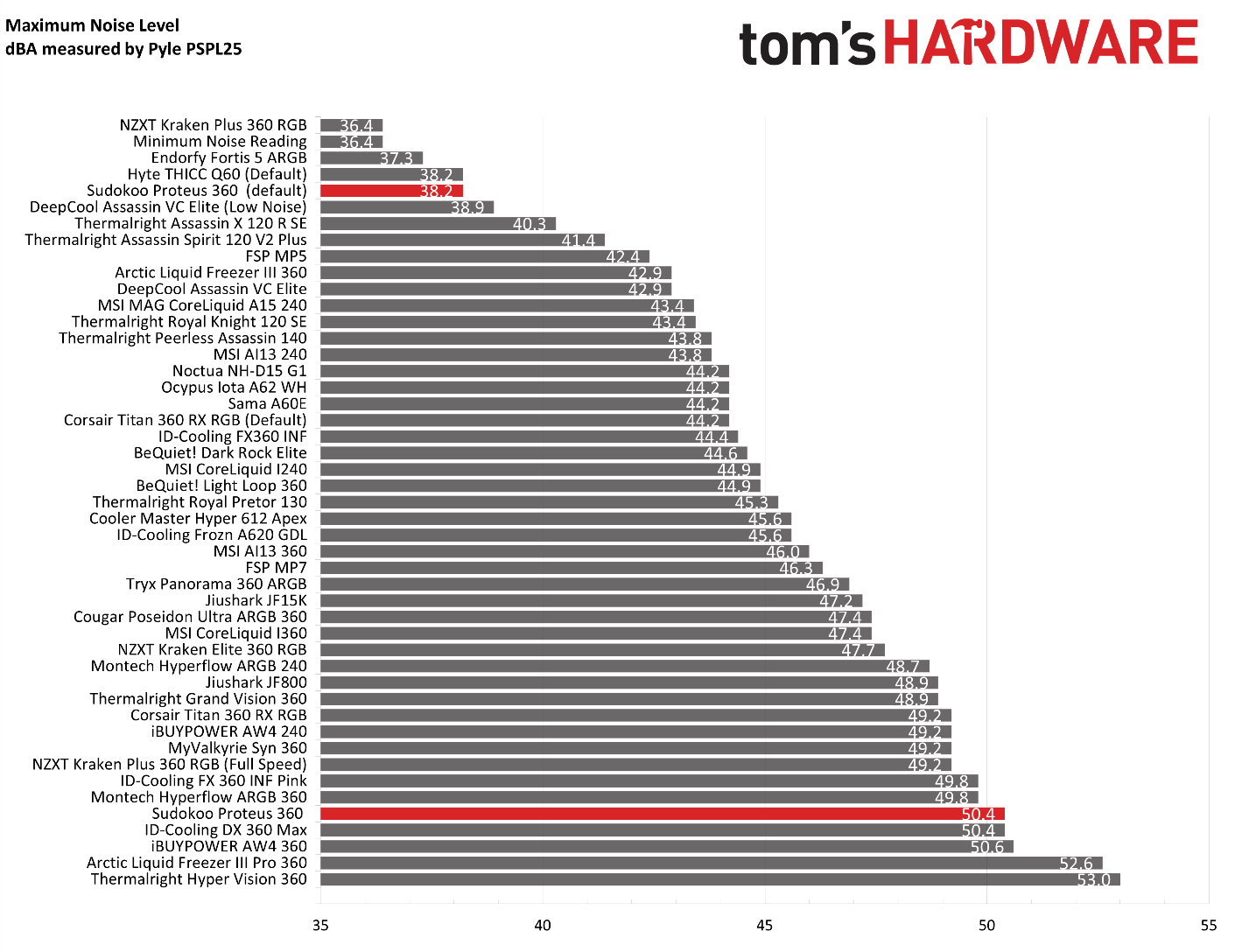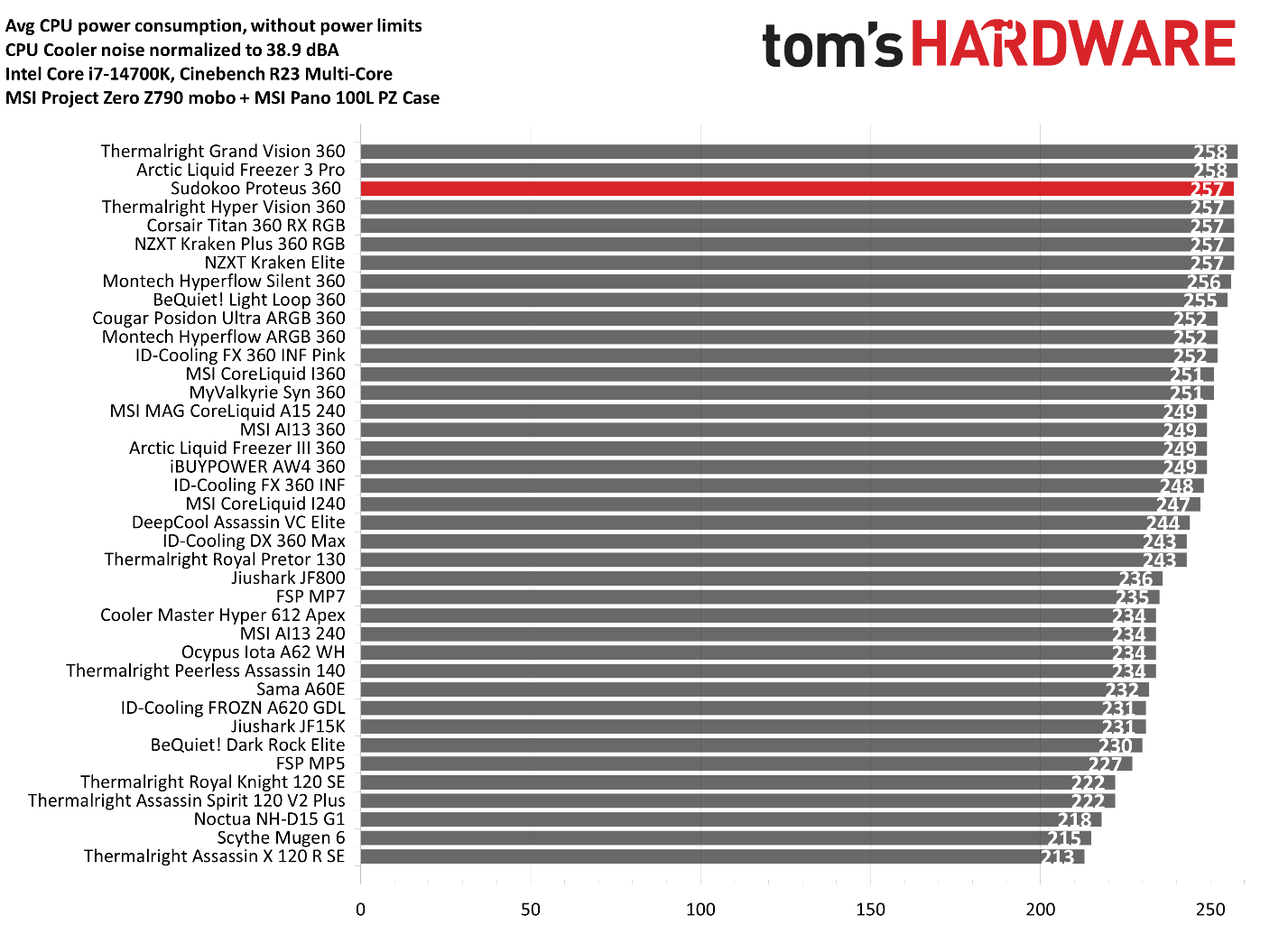Why you can trust Tom's Hardware
Maximum noise levels
This cooler can get quite loud if the pump and fans are allowed to run at their maximum speeds – reaching 50.4 dBA! Fortunately, noise levels remain under 38.2 dBA in the default configuration, which should satisfy most users who prefer low volume levels.
CPU-only thermal results with PBO enabled: AMD Ryzen 9 9950X3D
Without power limits enforced, the hottest CPUs on the market will hit their peak temperature (TJ Max) and thermally throttle with even the strongest of air coolers and even most liquid coolers on the market in intensive stress testing. For the best liquid coolers on the market, the results of this test will be shown using the CPU’s temperature. However, when the CPU reaches its peak temperature, I’ve measured the CPU package power to determine the maximum wattage cooled to best compare their performance. It’s important to note that thermal performance can scale differently depending on the CPU that’s being used for testing.
We’ll start by looking at the performance of this cooler with AMD’s flagship Ryzen 9 9950X3D CPU.
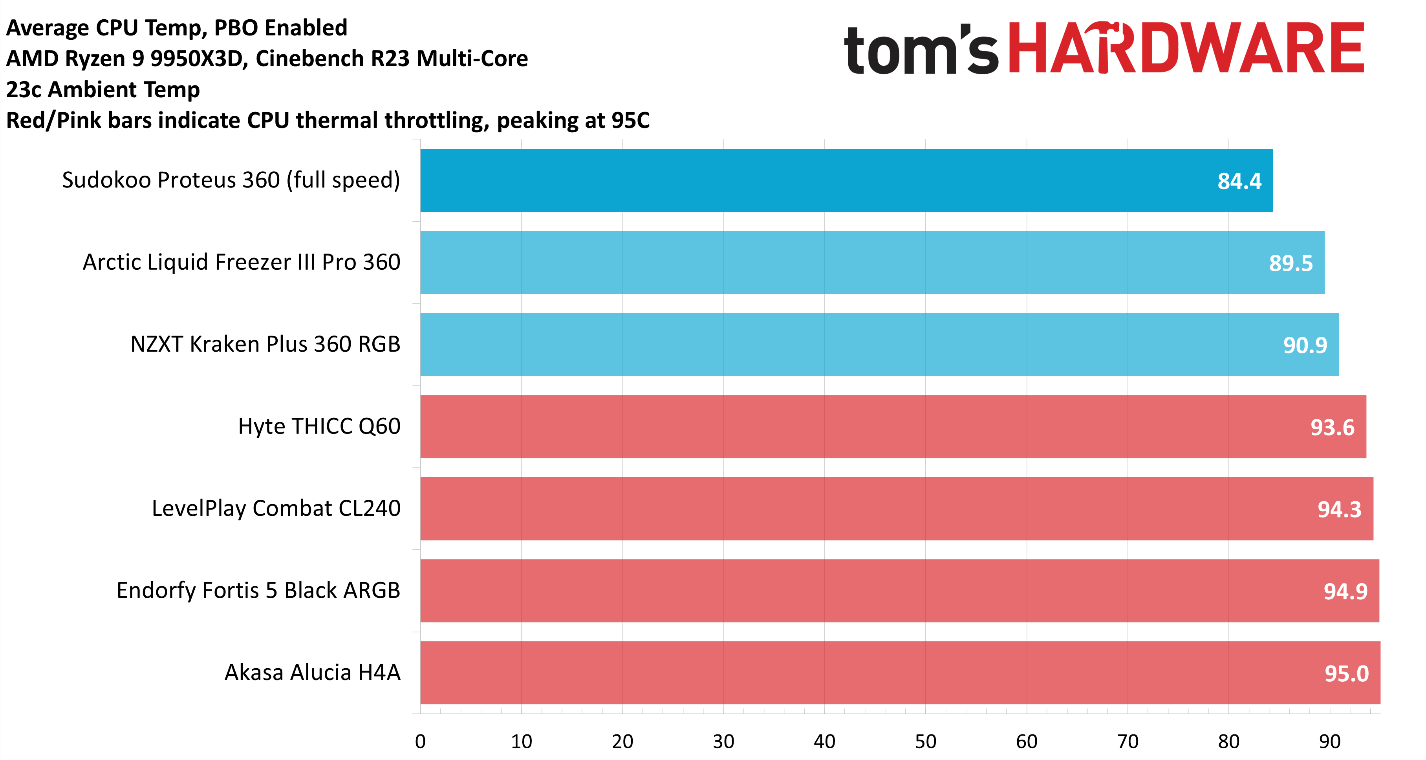
The strongest 360mm AIOs on the market can handle this workload without reaching the CPU’s peak temperature. With the disclaimer that we’ve only had a limited amount of time to test AMD’s Ryzen 9 9950X3D with liquid coolers, only two AIOs have passed this test thus far: Arctic’s Liquid Freezer III Pro and NZXT’s Kraken Plus 360.
At least – only two AIOs had passed this test until today. Sudokoo’s Proteus performed especially well in this scenario, outperforming Arctic’s Liquid Freezer III Pro by 5C – taking the crown for the best result we’ve seen yet with this CPU.
CPU-only thermal results with power limits removed: Intel’s i7-14700K
Now let’s switch it up and take a look at how this cooler performs with Intel’s i7-14700K. Looking at the results here, we can see that some coolers seem to scale better with Intel Core CPUs than they do on AMD’s Ryzen lineup.
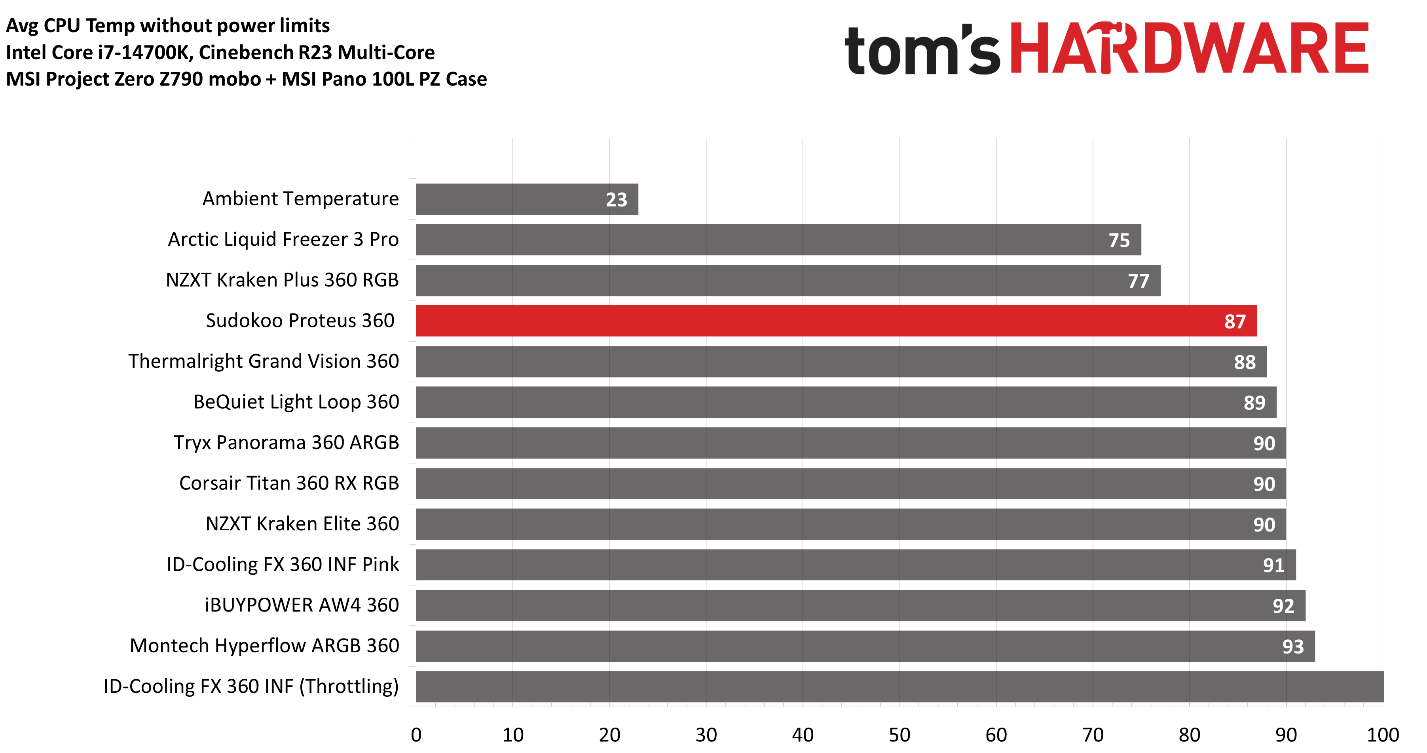
The performance of Sudokoo’s AIO wasn’t quite as earth-shattering as it was on an AMD system, but it still performed especially well, taking third place among coolers paired with Intel’s i7-14700K.
Get Tom's Hardware's best news and in-depth reviews, straight to your inbox.
200W Power Limit – AMD Ryzen 9950X3D
My recent reviews have focused more on tests with both the CPU and GPU being stressed, but readers have indicated they would like to see more CPU-only tests. Listening to that feedback, I’ve tested thermal and noise performance for AMD’s Ryzen 9 9950X3D at stock CPU settings, which limits power consumption to 200W.
In its default configuration, Sudokoo’s Proteus AIO performed very well at the stock power limits of AMD’s Ryzen 9 9950X3D, averaging 73.9C! Even better is that the fans ran very quietly, less than the noise measurements below would indicate. This brings us to the first downside of Sudokoo’s cooler, though. In the default configuration, the pump’s activity emits a some coil whine, causing noise levels to read 38.2 dBA.
In terms of dBA measurements, this is still on the low end of things, but the pitch of the pump’s whine will likely annoy users who prefer quiet operation.
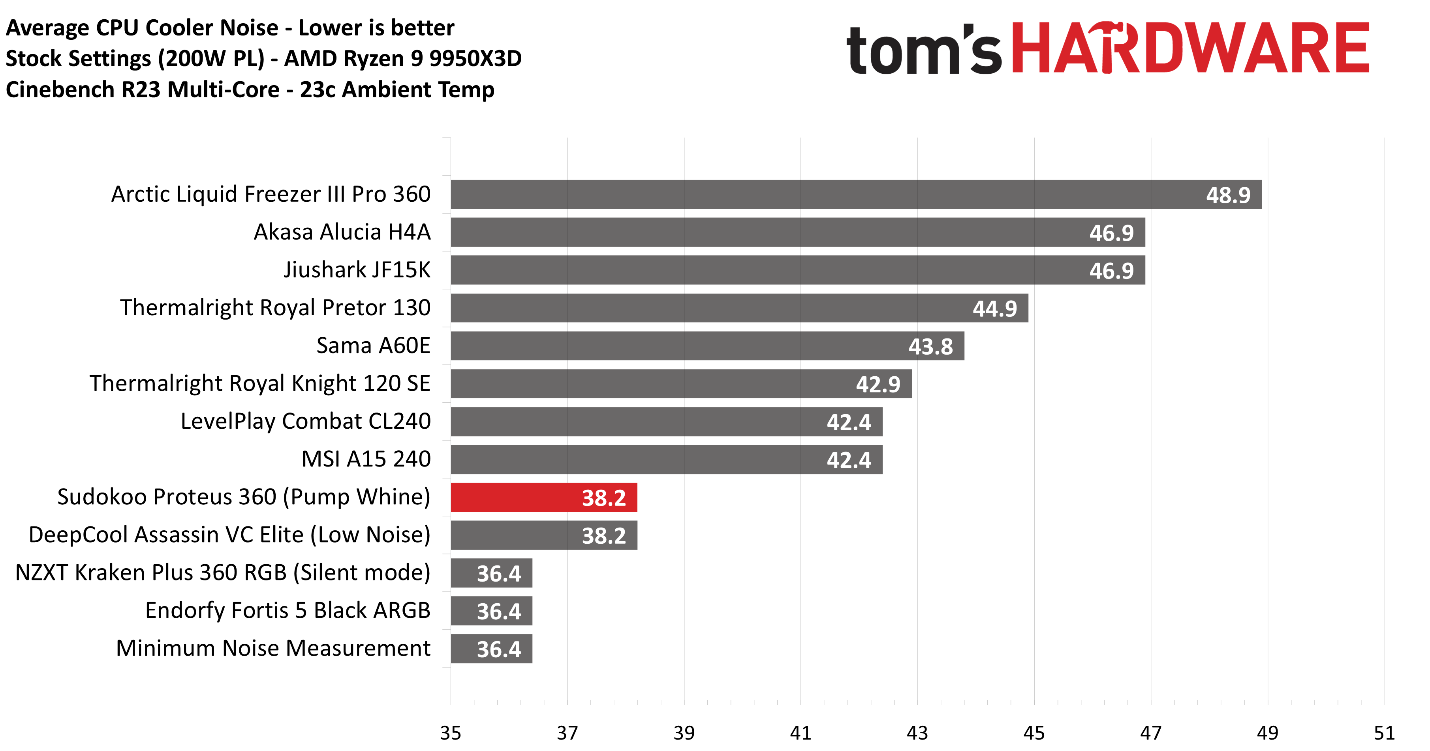
Noise Normalized CPU-only thermal results
Finding the right balance between fan noise levels and cooling performance is important. While running fans at full speed can improve cooling capacity to some extent, the benefits are limited, and many users prefer a quieter system. Some consider these tests to be the most important of all, so let’s look at noise-normalized performance.
We’ll be discussing two different, distinct tests. We’ll first look at our traditional noise-equalized results with Intel’s i7-14700K, which places a full CPU-only workload with the cooler’s noise levels set to 38.9 dBA.
The noise-normalized performance of this cooler with Intel’s i7-14700K is superb, on par with the best results we’ve seen from any AIO on the market.
Now let’s take a look at our noise-equalized tests utilizing AMD’s Ryzen 9 9950X3D CPU. Two changes (in comparison to our first test) have been made to increase the difficulty of this challenge. The noise level of the CPU coolers has been reduced to 37.3 dBA, and I’ve also run a full load on MSI’s RTX 4070 Ti Super GPU at the same time to increase the difficulty of this benchmark. One other challenge presented in this test is that the system fans have been reduced to 25% PWM, to emulate a low airflow environment.
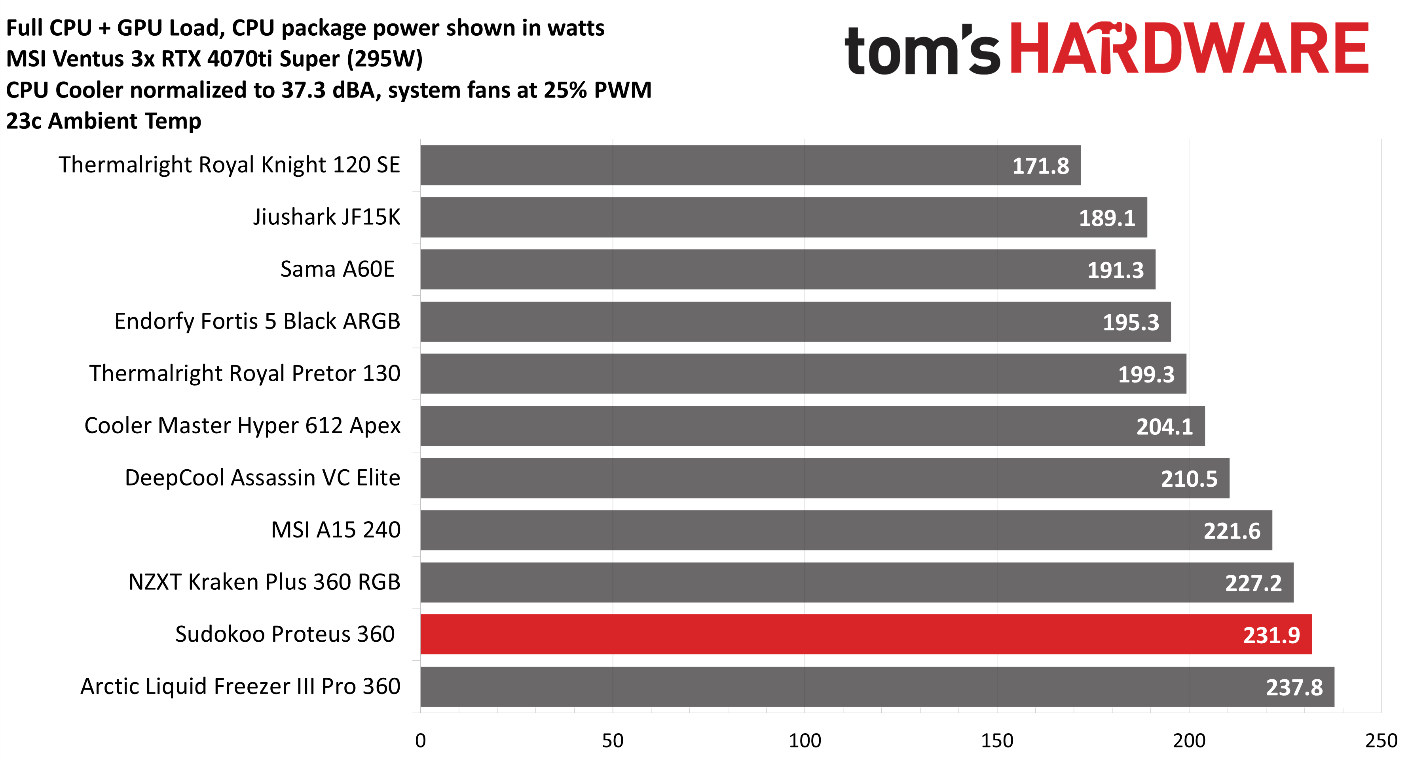
We’re seeing another near-chart-topping result with this test, with Sudokoo’s Proteus AIO having the second-best result we’ve seen yet.
150W CPU + 290W GPU results
Testing a CPU Cooler in isolation is great for synthetic benchmarks, but it doesn’t tell the whole story of how it will perform. If your GPU is running a full load, that heat doesn’t just disappear. It makes it harder for your CPU cooler to do its job because there’s extra heat to move out of the case.
A CPU power limit of 150W was chosen based on the worst CPU power consumption I’ve seen reported in gaming among various tech outlets covering AMD’s Ryzen 9 9950X3D. My personal experience has shown that most games use much less power, but this might be biased by the games I play.
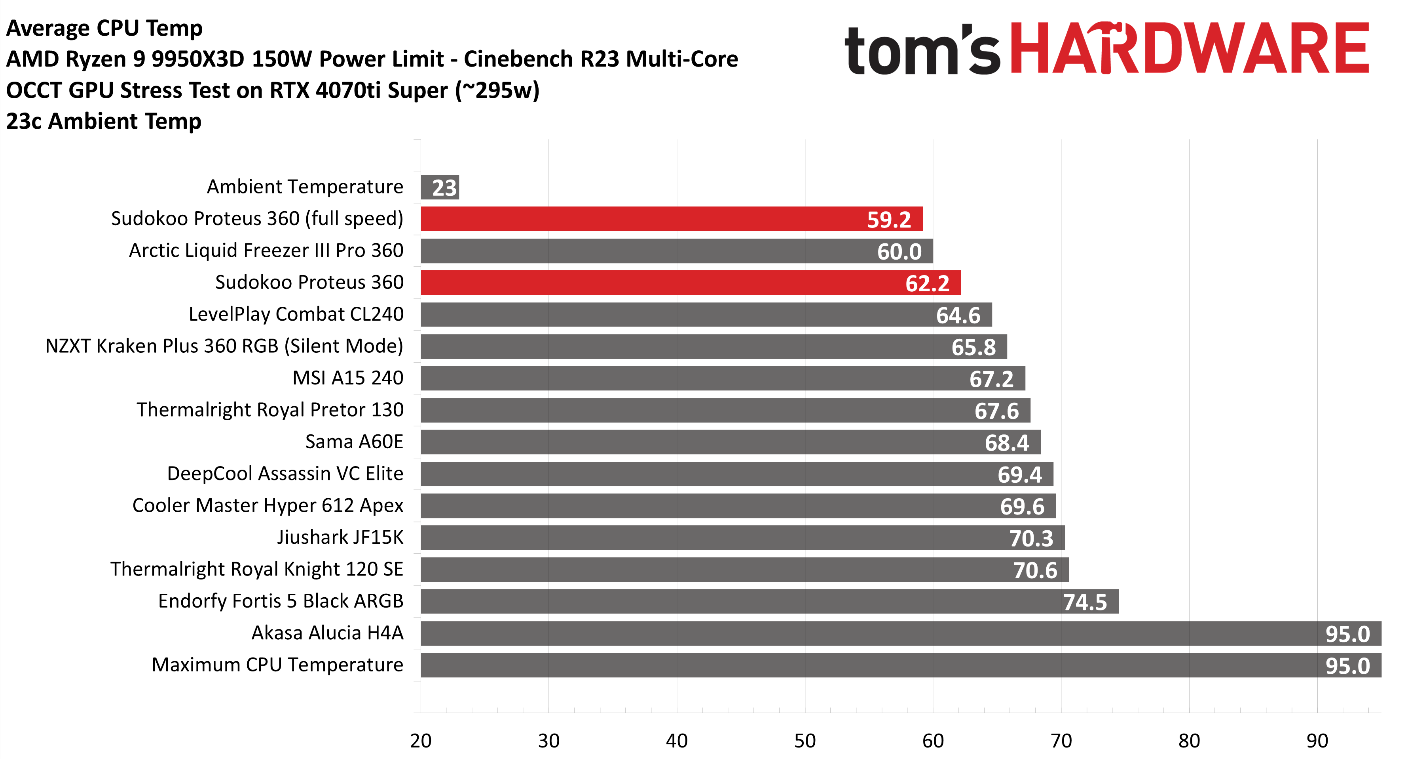
In its default configuration, running at a volume of no more than 38.2 dBA, Sudokoo’s Proteus delivers the second-best result again, outperformed by only Arctic’s Liquid Freezer III Pro (while running quieter than the competition from Arctic).
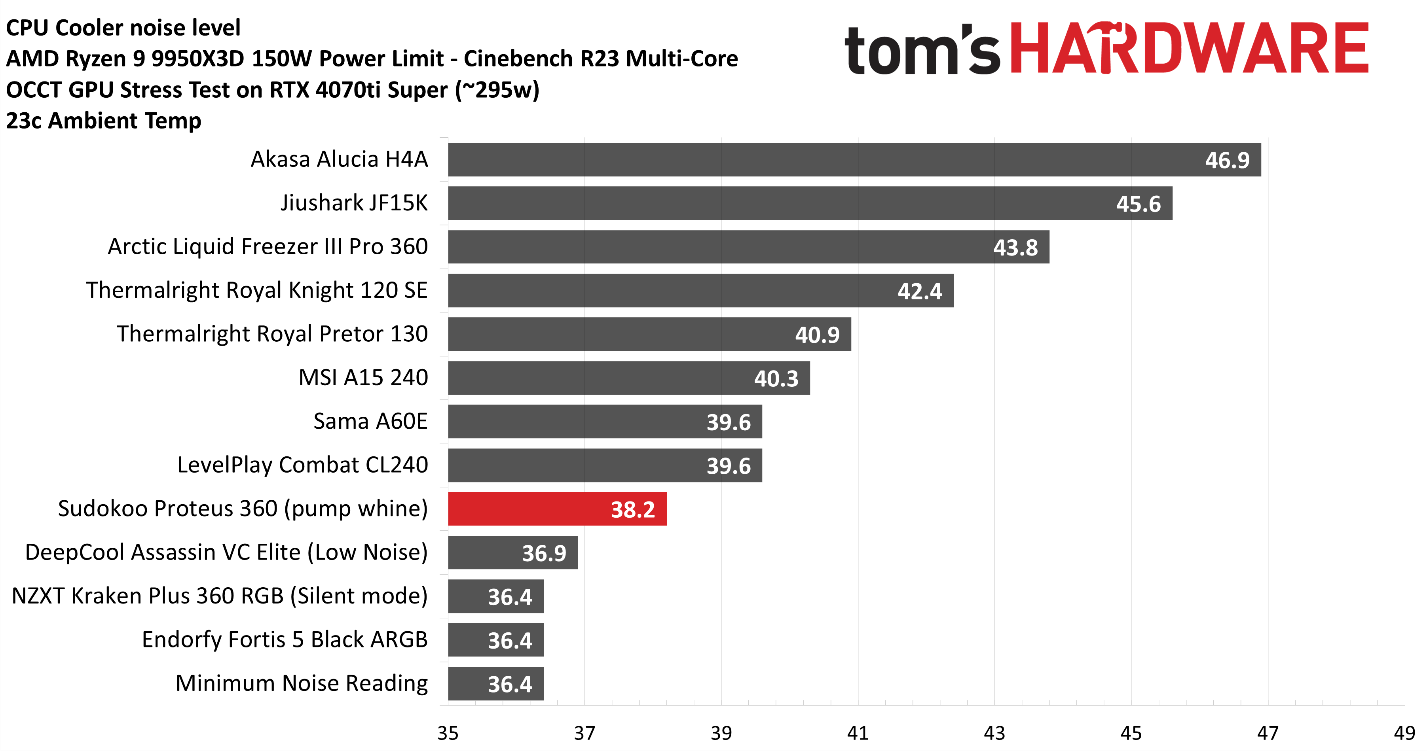
GPU temperatures during this test were the best recorded, but it bears noting that there isn’t a huge degree of variance here no matter what cooler you’re using on that front.
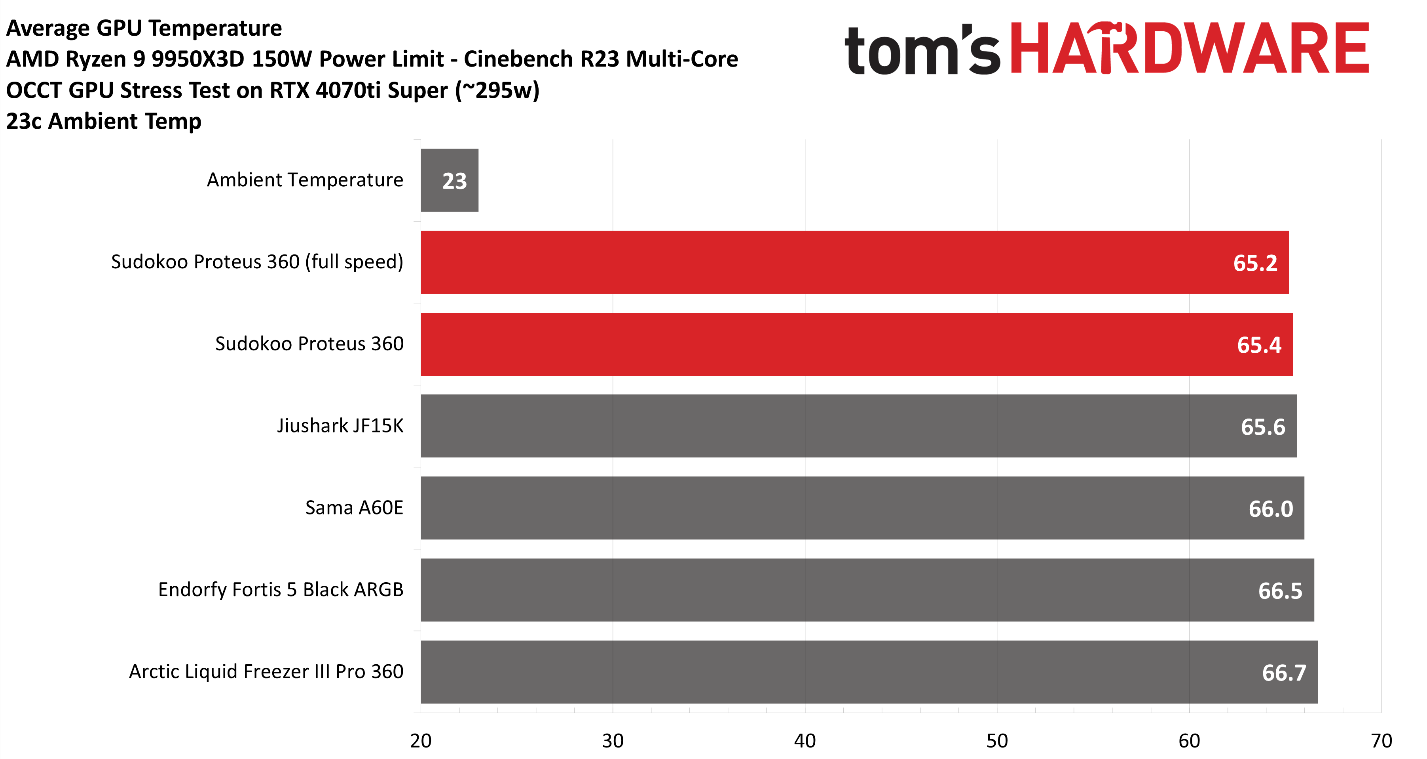
140W CPU results
The last round of test results we’ll look at is with a 140W power limit imposed. This level of power is dramatically easier to cool for most CPU coolers – and as a result, this is the easiest test we’ll run with AMD’s Ryzen 9 9950X3D CPU for most reviews.
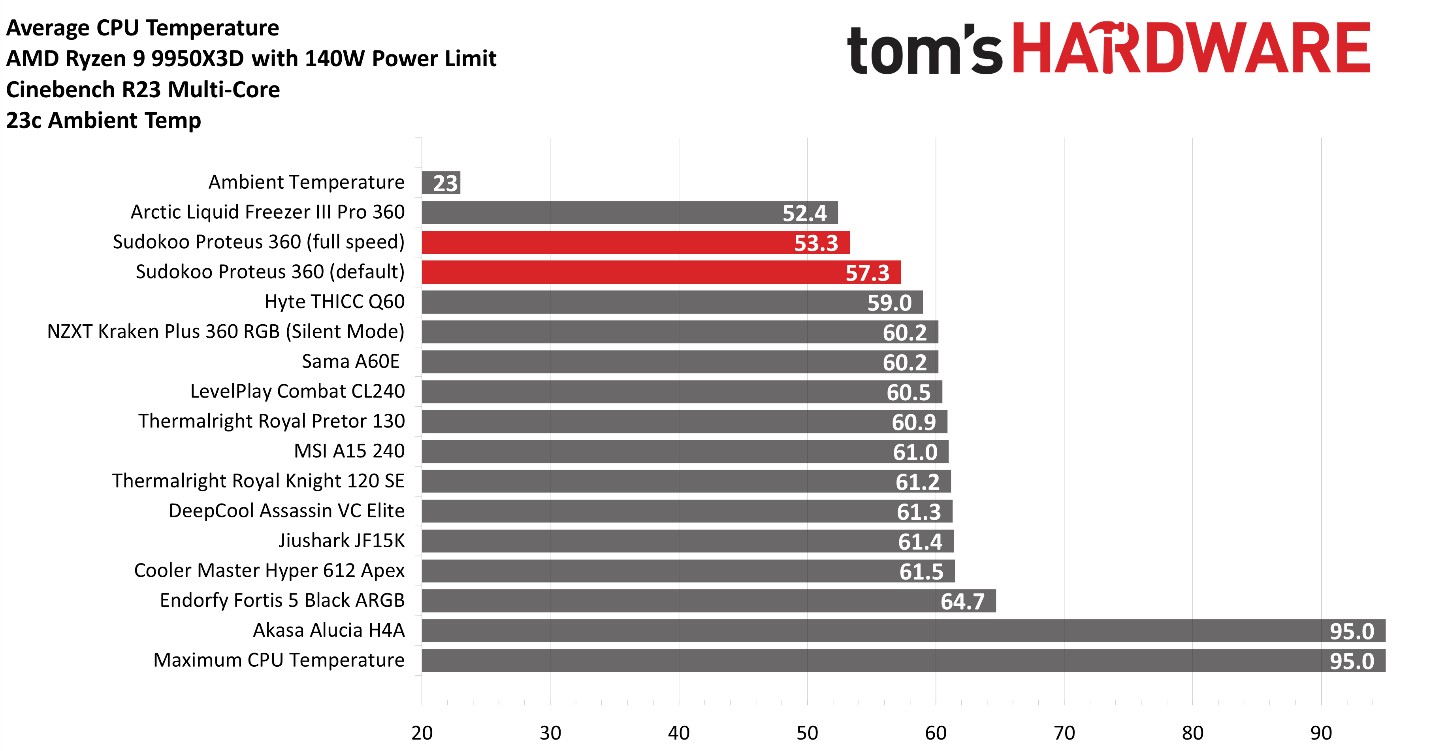
The performance here was excellent, holding the cooler’s familiar second-place position. The more important factor in this test is the noise level of the cooler, which reaches only 38.2 dBA, inflated by pump whine. The fans themselves run at a much lower volume level.
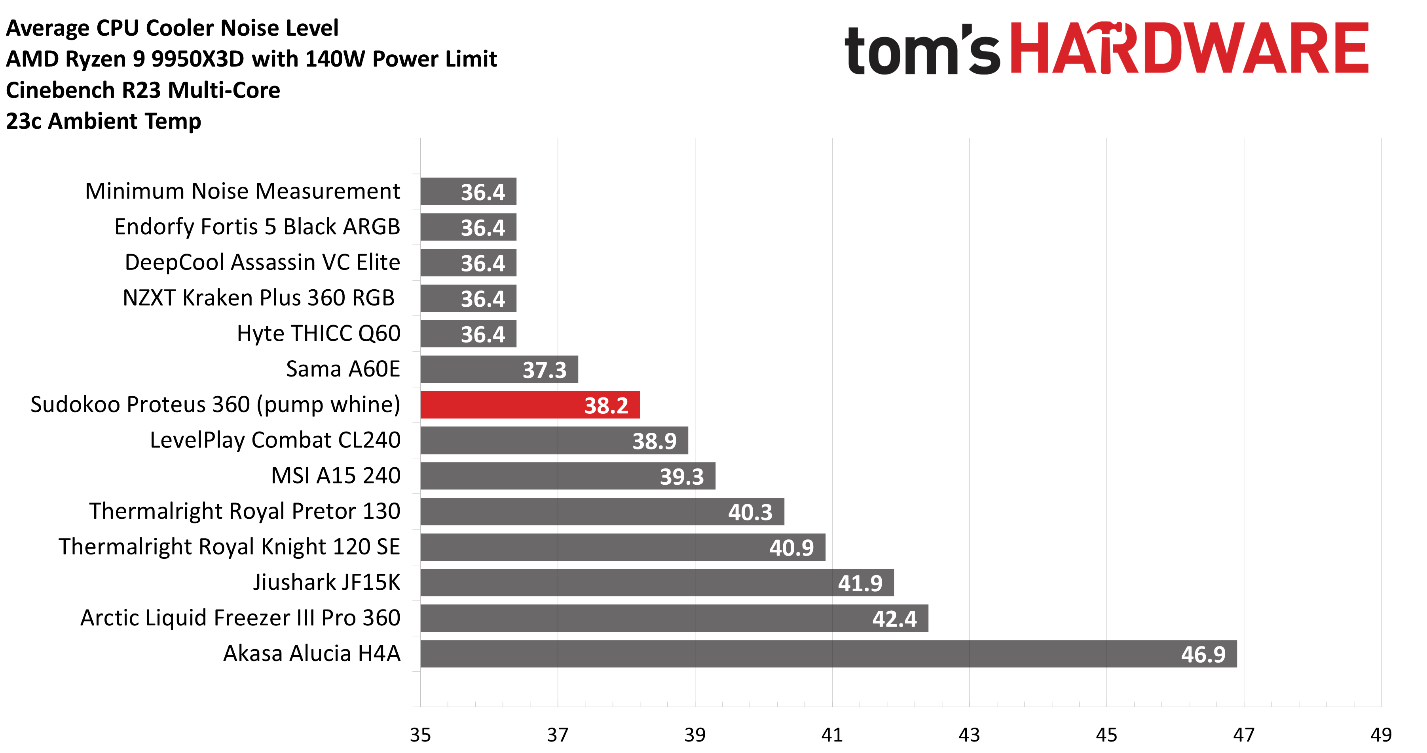
Conclusion
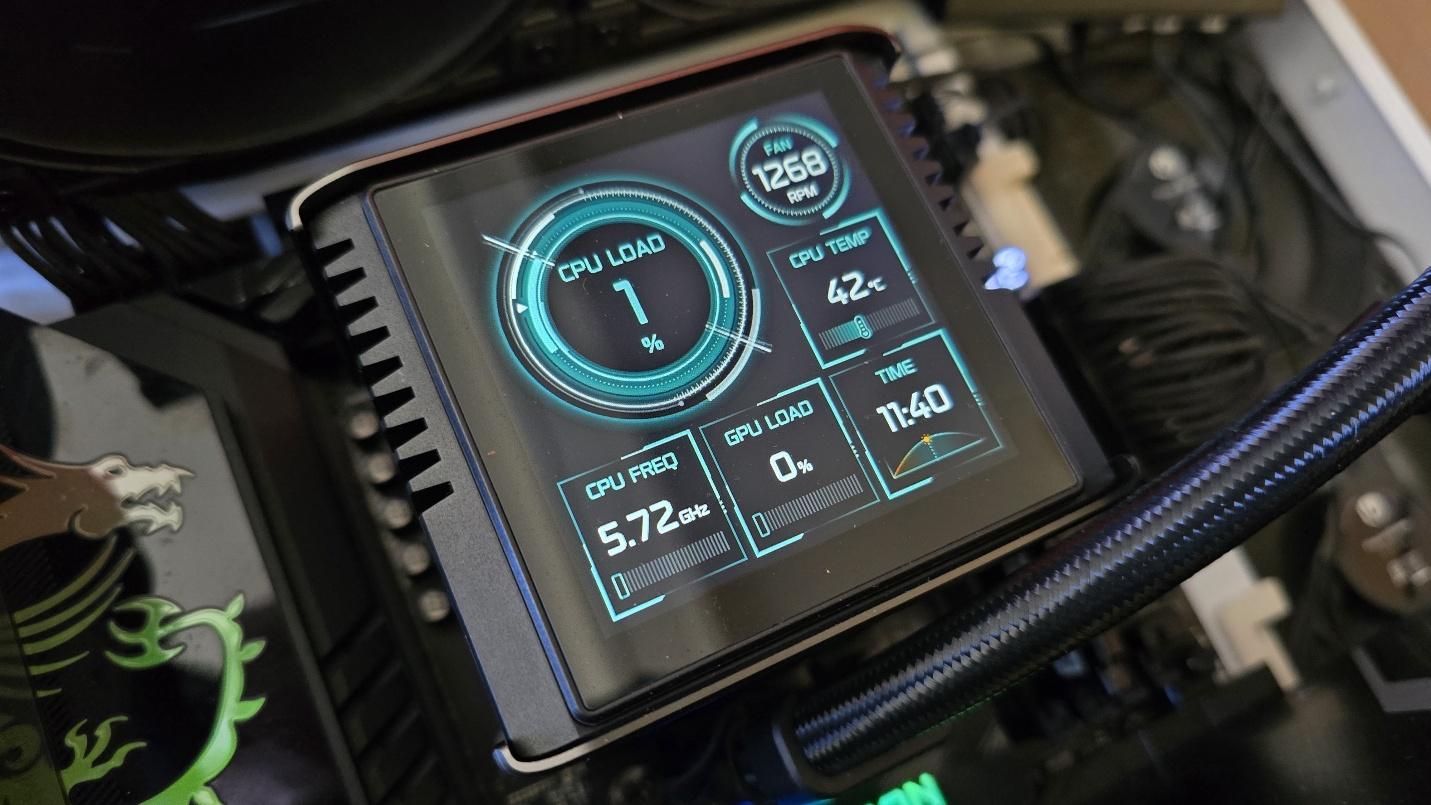
There’s a lot to like about Sudokoo’s Proteus 360 AIO. It delivers chart-topping (or nearly chart-topping) performance, combined with low fan noise levels, and the included LCD display can be customized to show a variety of performance metrics or whatever animation or video you want.
However, the unit exhibits pump whine unless its speed is manually reduced, and many users will be turned off by the particularly high price of $270 USD. If this AIO had a slightly lower price tag, and the pump’s default speeds were lowered to avoid the pump whine, I would find it much easier to recommend.

Albert Thomas is a contributor for Tom’s Hardware, primarily covering CPU cooling reviews.
-
wakuwaku Ah, the typical Tom's AI dilemma. Person A writes article/review, cites Person B article. But the Article of Person A says X while citing the Person B article that says Y.Reply
Basically, review says Singaporean Company, cited article says Taiwanese Company.
Imo you should've added abit of clarification on your article because after reading that introductory line and clicking on that link only leads to more confusion. Sudokoo is based/headquartered in Singapore (Not sure about its origins, google-fu not strong enough) but its AIOs are sourced/engineered by a Taiwanese OEM. -
thestryker Sudokoo using Deepcool components isn't surprising since their first coolers were basically just Deepcool. I doubt they're directly linked to Deepcool, but they didn't appear until after Deepcool was barred from selling in the US.Reply
The cooler itself seems decent, but for that type of price I'd expect chart topping performance (with decent noise level) as well.
